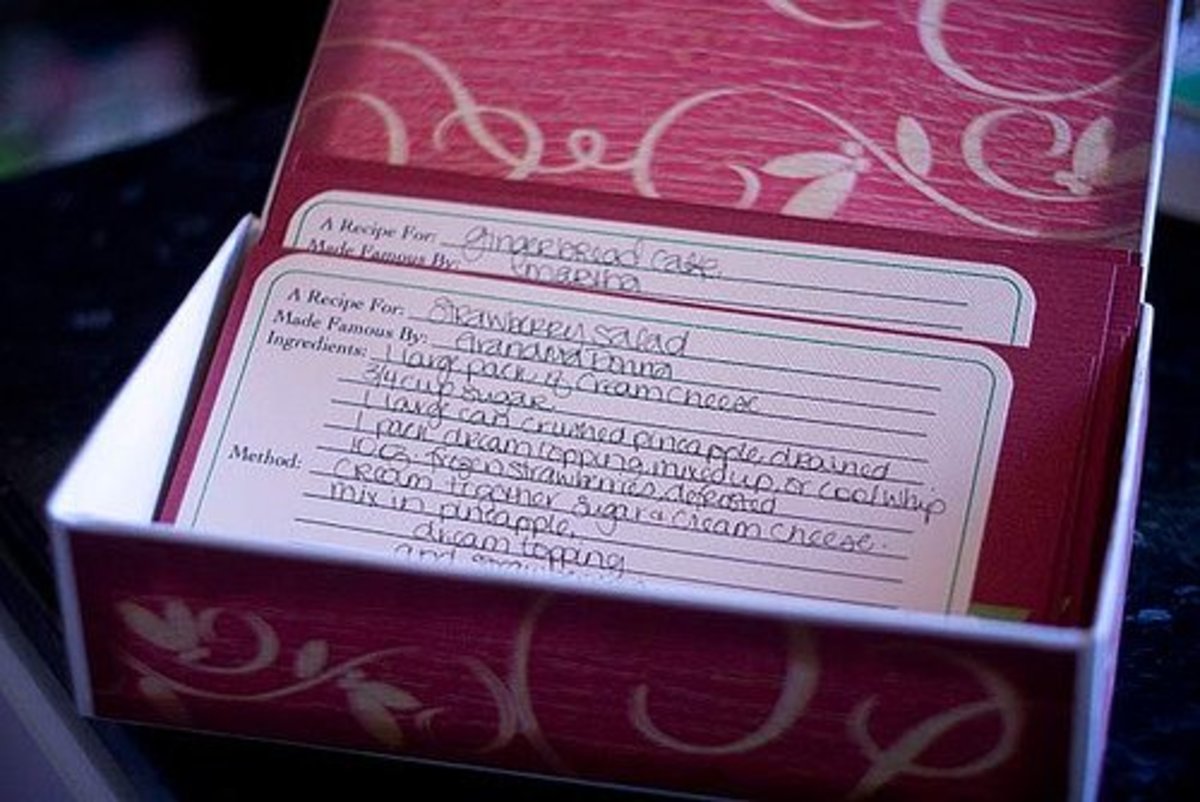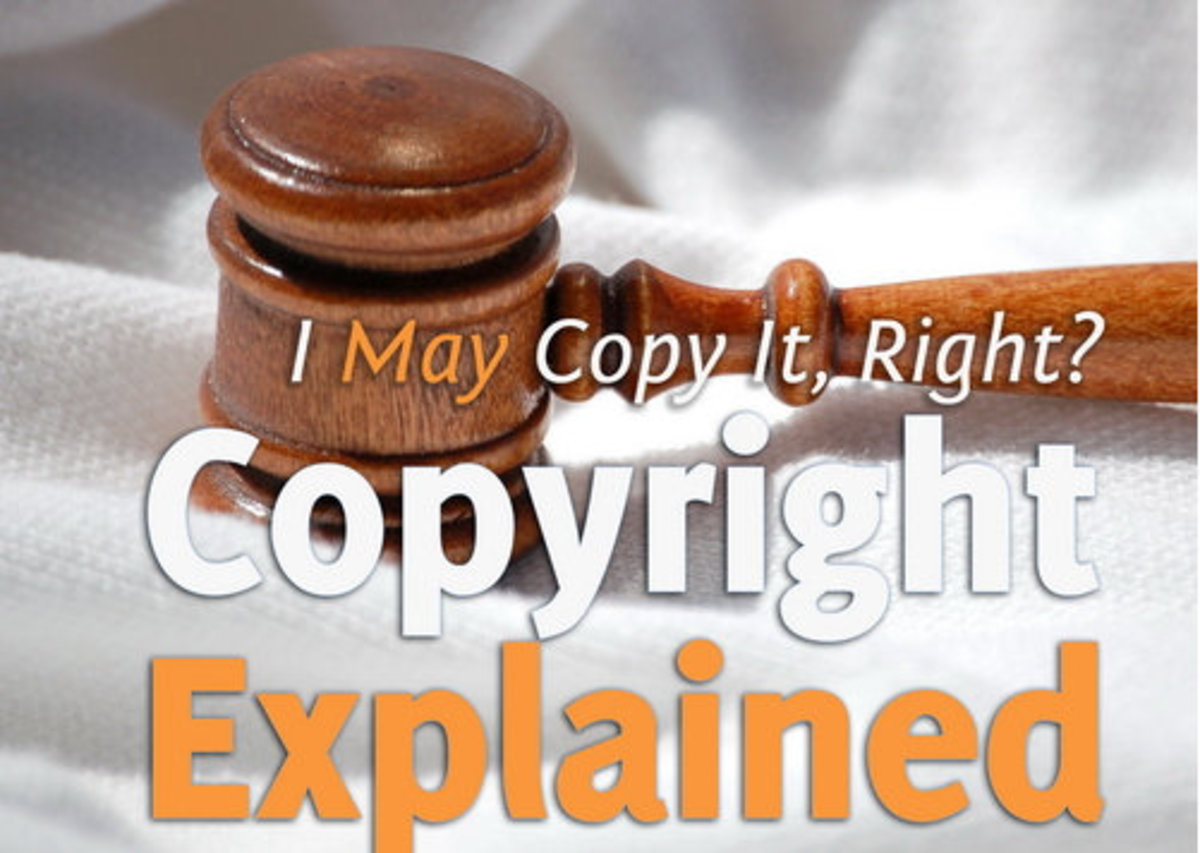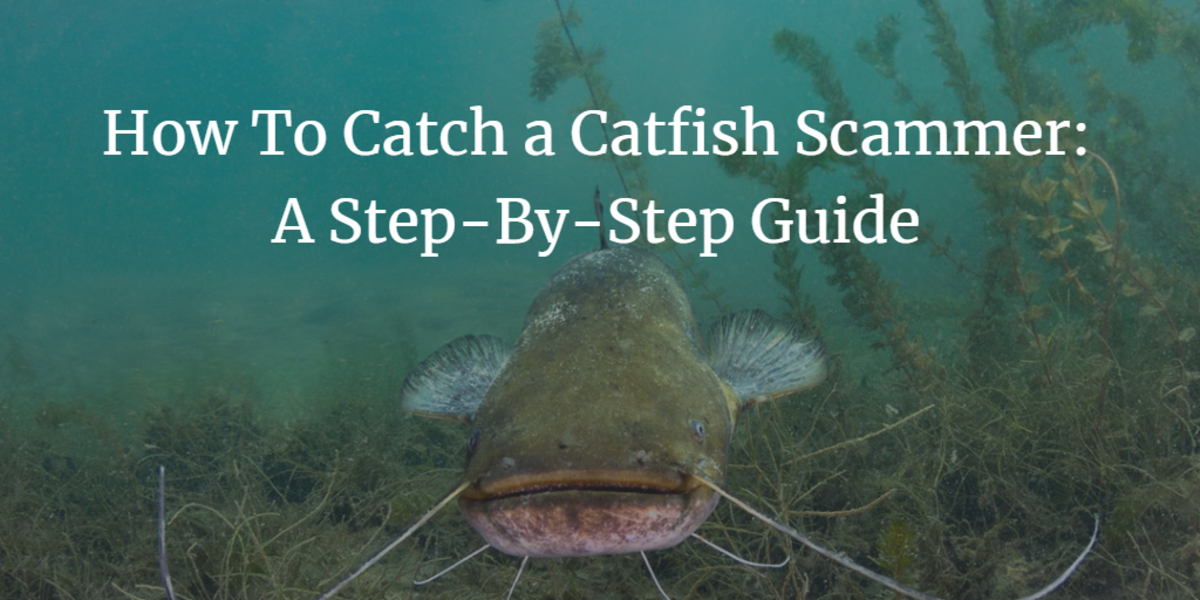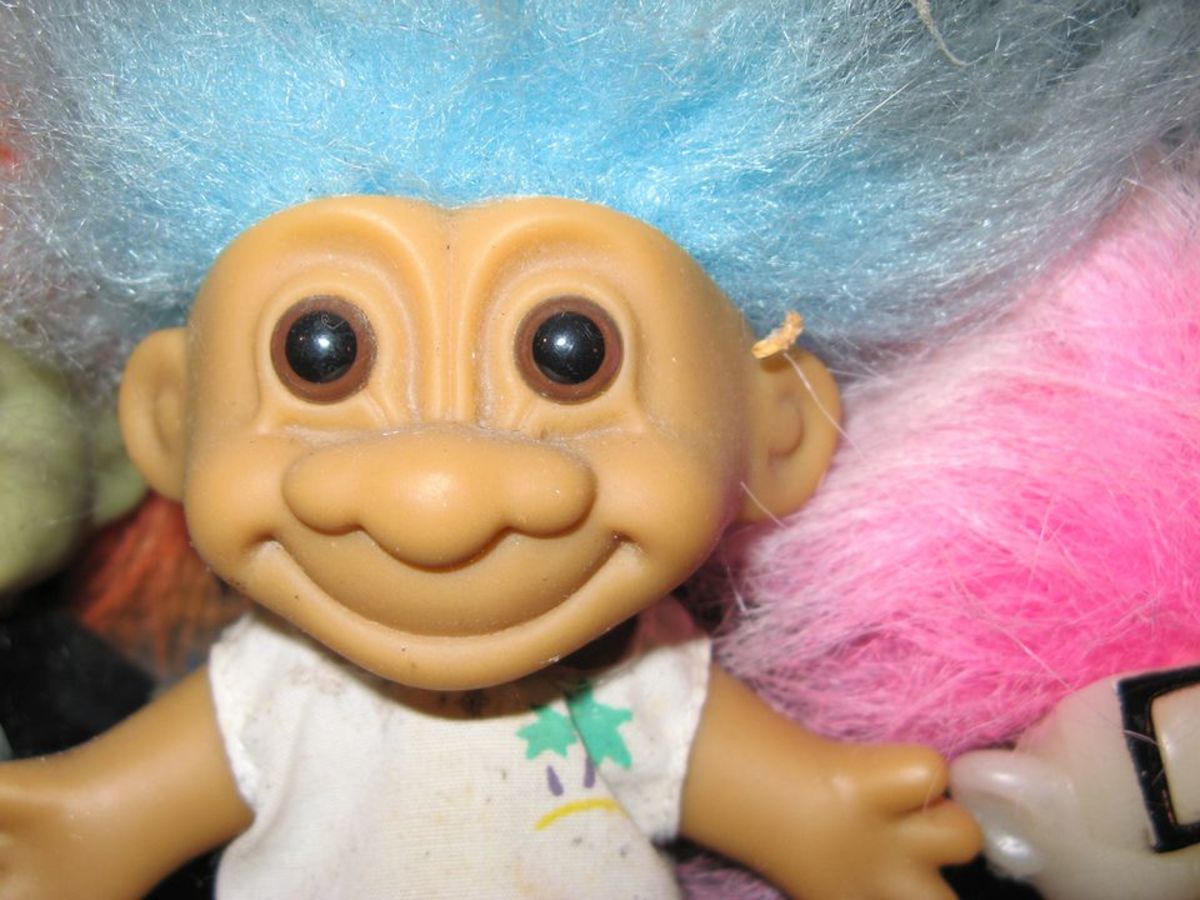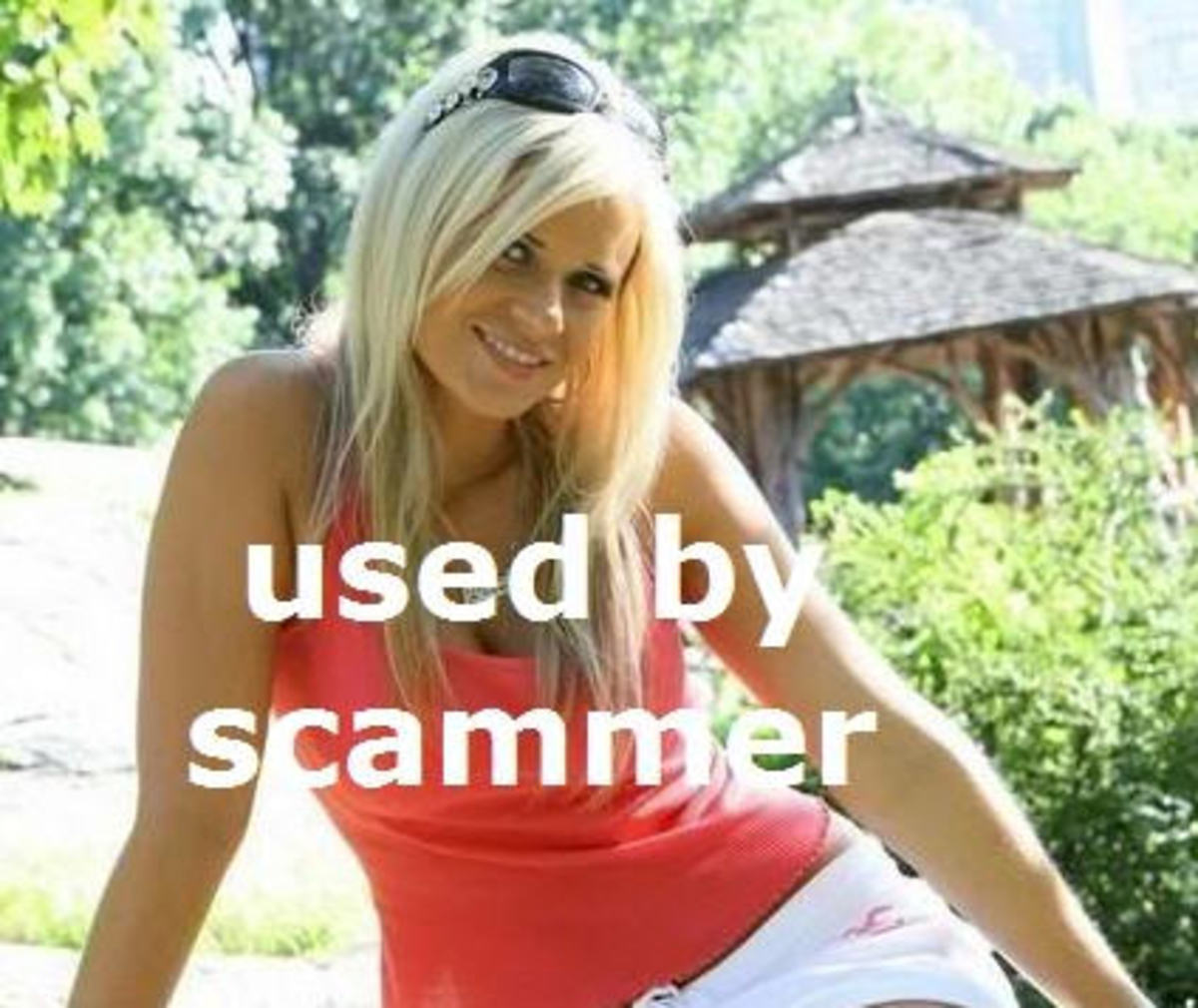What to do when someone steals your written work
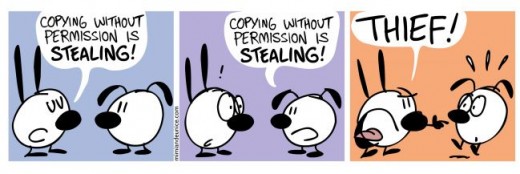
Hey – That’s mine!
There’s no feeling quite like it. There it is, your work, your brainchild, your creativity, your sweat and tears, proudly displayed on someone else’s site, often under some other “author’s” name, without credit or link to the original and definitely without your permission. You are infuriated. And rightly so.
Copyright infringement (or plagiarism of any kind) is theft. Those who do it are thieves.
Has it happened to you? It has to me, many times.
The first time was with one of my early hubs called A look at human rights and access to medical care, written and published two and a half years ago. A month later, another hubber sent me an email telling me he’d seen my article on a site called Xhomba – this being in the days before Hubpages had a “copied hubs” feature. Sure enough, when I navigated to that site, there was my article – verbatim – under another writer’s name. The solution was easy enough; one email to the site’s administrator and the stolen copy was removed.
The next time was a little more complicated. I had published an illustrated history of the US national debt in December of 2009, one of my best performing articles receiving upwards of 50 views a day. Hubpages by this time had begun their duplicate content review and one day, lo and behold, The United States National Debt – 233 years in the making was tagged.
I followed the link our Hubprogram so kindly provided, only to find my purloined article posted on a Chinese site, and yes, under another writer’s name – no credit to me, naturally. Every writer on the net knows the Chinese don’t give a hooey about copyright, and how difficult it can be to get stolen copy removed.
At that time, being totally ignorant of the remedies allowed copyright holders on the net, I began what was to become a month long campaign. Because everything on the page, except my article was in Chinese characters, there may have been an email address, or a contact link to the site’s administrator, but I wouldn’t have known, so instead, I started leaving comments. Every day, I posted a comment “This article was stolen from….” or, “The above named writer did not write this article; I did,” and “The use of this article here is in infringement of copyright as it has been copied from…” Eventually, the article was removed. (Yes, I am that incredibly possessive of my work.)
The Fair Use statute:
The doctrine of fair use developed over the years as courts tried to balance the rights of copyright owners with society's interest in allowing copying in certain, limited circumstances. This doctrine has at its core a fundamental belief that not all copying should be banned, particularly in socially important endeavors such as criticism, news reporting, teaching, and research.
Although the doctrine of fair use was originally created by the judiciary, it is now set forth in the Copyright Act. Under the Act, four factors are to be considered in order to determine whether a specific action is to be considered a "fair use." These factors are as follows:
- the purpose and character of the use, including whether such use is of commercial nature or is for nonprofit educational purposes;
- the nature of the copyrighted work;
- the amount and substantiality of the portion used in relation to the copyrighted work as a whole; and
- the effect of the use upon the potential market for or value of the copyrighted work.
The Fair Use Act
I had an intriguing response from the administrator of another site who’d copied the entirety of my article Interviews with Four Convicted Sex Offenders without credit or link.
He answered me with a copy of the Fair Use Act, stating as he received no income, he was entitled to copy my work and use it for educational purposes. (Not true! – he may have used short quotations with credit, but not the entirety.) I did some research into the Act (see insert to the right) and sent him my argument, but as correspondence continued, and I realized what he was trying to do: maintain a website with resources and information for those on the Sex Offender’s Registry – at his own expense and with no income, I ended up giving him permission to use portions of the article, provided he gave me credit and a link to the original.
But for those of you faced with a similar experience, The Fair Use Act does not allow non-profit or educational sites to appropriate your entire article, only to use quotations, with due credit given.
No, I’m not going to write a long and boring recitation of each and every one of my stolen articles and what I did. Since those early thefts, I’ve learned a lot so let’s just jump ahead to the latest misappropriation of my work.
The Rape of the Innocents -- child sex abuse ©
My most popular article is The Rape of the Innocents, a description of my years in child protection written in October of 2009, currently rated as an 85 despite the fact it receives hundreds (several hundreds) of views a week – every week -- for over two years. (I’ll never understand the rating system here. Perhaps it has something to do with the fact advertising is disallowed on this page.)
A few days ago, I received a warning the hub had been copied as you can see by the subtitle, and, thank you very much, a link to the thief’s site was provided. I went into action using the steps I’ve now made my practice in all such occasions, and that I will now share with you here.

What to do when your work has been copied
- 1) Contact the thief’s website - Send the website a strongly-worded e-mail. (I no longer bother with sending a nice message anymore. Copy scrapers know what they’re doing is wrong.) I usually start with “This article has been stolen from…” giving my URL “and is an infringement of copyright.
- 2) I wait, and if that receives no response, I send another, identifying myself as the author of the piece and providing URLs for both the original and the illegal copy of the article in question. I demand that they remove the content from their website immediately. I then save a copy of the e-mail for my records. If you cannot find any contact information on the website, you can perform a Whois search to find out who is listed as the owner of the website.
Hubpages has provided a suggested email which addresses the above points. You’ve all seen it, I assume, but I’ll copy it here, anyway.
“I am writing to you to avail myself of my rights under the Digital Millennium Copyright Act (DMCA). This letter is a Notice of Infringement as authorized in §512 of the U.S. Copyright Law.
1. The copyrighted work at issue is the text that appears on: http://lmmartin.hubpages.com/hub/....
2. The URLs where my copyrighted material is located include: (removed due to my innate good manners.)
3. My contact information is as follows: (info removed for obvious reasons)
If this does not get the requested action, there are more remedies you can use:
- Report to Google AdSense File a spam report with Google. – Usually, the reason that people steal articles is to post on websites filled with advertising in order to make a profit. The most commonly used ad service is Google AdSense, who have a strict anti-plagiarism policy. Google investigates all reports and, if found to be true, revokes accounts from those who plagiarize.
- DCMA Copyright Infringement Notice - Under the Digital Media Copyright Act (DCMA), all intellectual property online is protected against unauthorized reprinting. To report a violation, a written complaint must be filed either by postal mail or via fax. Or, you can use an online service such as this one: Click Here To File A DMCA Complaint
I have never had to go beyond step 2 (a letter of intent.)
Would I go on to steps 3 and 4? You bet! It isn’t even a question of lost income; it is one of principles. I am a professional writer and I am as possessive and protective of my work on Hubpages (which I consider my private publishing site) as I am over my write-for-pay work. I did not labor over The Rape of the Innocents in order to fill some other blogger’s site, nor to have my work stolen and published as another’s work. I don’t want my reputation diluted by duplication all over the net.
So yes, I would do whatever it takes.
For those who would like to use my work
I’m actually a very nice person, and though I do see your desire to use my work as a compliment, simply taking it is theft, so if you’d like to use my words, contact me and ASK for permission. You can contact me through my profile here on this site, you know.
If this latest blogger had taken the time to contact me with “I really like your article and would like to use it in my blog,” I would have responded. BUT, I would not have allowed duplication of the article. I would have been happy to write something original as an introduction, and provided a link to the article itself. I’d have gladly given an interview with a link. I would have been pleased to help.
“But I thought you’d be pleased I copied your work…”
This particular blogger responded with the idea that seeing as she was working to stamp out child abuse (good luck!) she assumed she had the right to take it. She did remove my article, and wrote this:
“I have been asked to remove this persons article, as I was told I did not have permission to repost it.
Which is quite puzzling to me, as I would have thought that the person, who claims to be against child abuse, would have been pleased about me reposting it. But in no uncertain terms, I have been told otherwise.
We anti child abuse bloggers - particularly those of us who have suffered abuse - tend to take it as a given that if one of us posts something the others will have full permission to repost it, so as to give the article as much publicity as possible.
So I am very surprised about this persons attitude.” – stolen from her blog
As a result, I softened and sent her another comment to try to explain (which I fully expected would be removed as were the first two but was not.)
“You do not have the right to simply take someone's work and copy it on your own blog. I suggest you do not do so in the future.
Had you contacted me, I would have been happy to write an introduction with a link to the article. I would also have been more than pleased to offer you material from my years of experience in child protection.
Further, it would seem to me that plain good manners dictate contact before simply taking a writer's work and publishing it.” – my actual response
I was not asked. My work was stolen. There’s no other way to put it.
This blogger responded by trotting out her history as a victim of child abuse, suggesting “perhaps if you knew the gigantic monster we who have been abused are fighting you might have been a bit more understanding.” That I was cold-hearted for objecting to her theft. That I had no right to protect my work, considering her suffering and that of others.
To this blogger and any others who are tempted to steal a writer’s work:
My dear blogger,
No matter what your intent, copying without permission is theft. The article you so cavalierly copied represents hours of hard work on a subject dear to my heart and is not merely a casual blog. It has been read by thousands of people every month since it was published and I hope it continues to be so. Diluting the work by duplication will reduce the article’s ranking, making it less visible to anyone doing a search on the subject of child abuse. Therefore, your actions would nullify your intent.
I have been writing on this issue – including published books – for many (many) years, and I am not aware of any agreement, tacit or otherwise that would justify one writer copying and using the words of another. Indeed, we respect another’s writing as property of the author and would never consider filling our own pages with their work, though we may quote a portion here and there, with credit given, and perhaps link their work to ours.
Using your past as a victim of child abuse to try to shame me for protecting my work is outrageous. I have worked with many victims of crimes against children in the past and the one thing I’ve tried to instill in them is that the past does not have to become their entire life. (And I know that, firsthand.) I may feel sorry for your pain, but do not see it as an entitlement to ignore right and wrong.
My point is this: do not take someone’s intellectual property without permission. If you do, and you are caught, do not use your history to justify your wrong doing, and do not attack the owner for protecting what is theirs.
Yours sincerely,
Lynda M Martin
December 30, 2011

